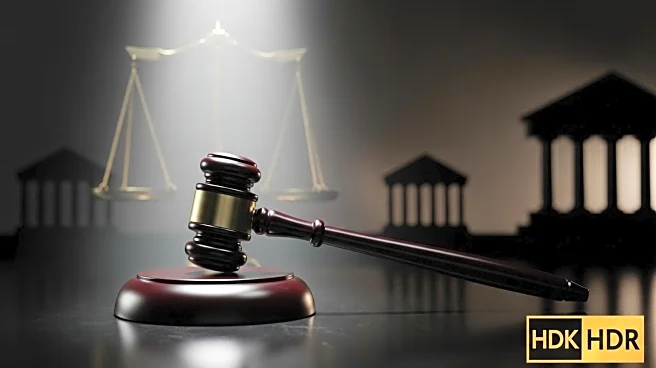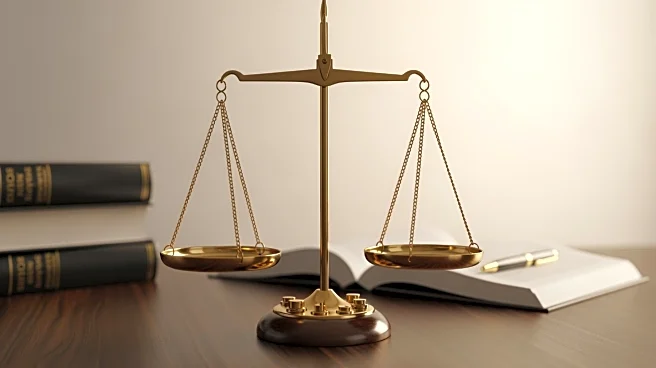What's Happening?
The trial of Ryan Routh, accused of attempting to assassinate then-candidate Donald Trump, is progressing rapidly. Routh, who is representing himself, faces multiple charges, including attempted assassination and possession of a firearm as a felon. The prosecution is expected to rest its case soon, with Routh set to call his witnesses. The trial has seen testimony from Secret Service agents and eyewitnesses, detailing Routh's alleged actions at Trump's golf club in Florida. The case has drawn attention due to Routh's erratic behavior in court and the serious nature of the charges.
Why It's Important?
This trial is significant as it involves an alleged assassination attempt on a major political figure, highlighting the security challenges faced by public officials. The case underscores the importance of the judicial process in addressing threats to political leaders and maintaining public safety. It also raises questions about the mental health and legal representation of defendants in high-profile cases. The outcome of the trial could have implications for security protocols and the handling of similar cases in the future.
What's Next?
As the trial continues, attention will focus on Routh's defense strategy and the witnesses he plans to call. The court's handling of Routh's self-representation and his interactions with the judge and witnesses will be closely watched. The verdict could influence future legal proceedings involving threats to political figures and the measures taken to prevent such incidents.









